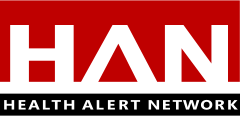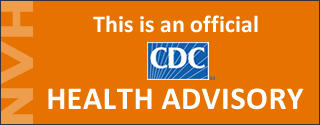Nationwide Shortage of Doxycycline: Resources for Providers and Recommendations for Patient Care
Distributed via the CDC Health Alert Network
June 12, 2013, 13:00 ET 01:00 PM ET
CDCHAN-00349
Summary
The Food and Drug Administration (FDA) originally reported a shortage of some forms of doxycycline (doxycycline hyclate) and unavailability of tetracycline on January 18, 2013, caused by increased demand and manufacturing issues. FDA continues to report shortage from some, but not all, manufacturers of some dosages and forms of doxycycline hyclate and doxycycline monohydrate. FDA does not currently report a shortage of intravenous doxycycline hyclate or the oral suspension doxycycline calcium commonly used in pediatric patients. For additional information about the availability of doxycycline, visit the FDA Drug Shortage website (http://www.fda.gov/Drugs/DrugSafety/DrugShortages/default.htm). Information about drug shortages can also be found at the American Society of Health-System Pharmacists (ASHP) website (http://www.ashp.org/default.aspx). This notice provides advice on alternatives to doxycycline when available, as well as situations where there is no recommended alternative to doxycycline.
Background
Doxycycline is a broad-spectrum, bacteriostatic antibiotic used to treat a variety of diseases. For many indications, doxycycline is one of several options available for patients. However, for rickettsial infections, doxycycline is the treatment of choice. No data are available to recommend minocycline as an equally effective alternative to doxycycline for any of the diseases mentioned. Additionally, the spectrum of adverse effects with minocycline is higher than that for doxycycline. Tetracycline may be a suitable alternative for some diseases and indications; however, a similar shortage of tetracycline has been reported.
Recommendations
- Doxycycline should be used to treat suspected rickettsial infections; no alternatives can be recommended that have the same proven degree of efficacy in limiting fatal outcome. Because treatment delay can result in adverse or fatal outcome, planning for doxycycline availability is essential.
- Doxycycline is the recommended drug for prophylaxis of Lyme disease; alternatives have not been tested for efficacy. Providers should be judicious in its use following a tick bite.
- Doxycycline should still be used for the prophylaxis and treatment of malaria according to the standard recommendations.
- Alternatives exist for the treatment of STDs and Lyme disease. Providers should use clinical judgment in making treatment and prophylactic decisions. Refer to the links in the section below.
Detailed explanation of the rationale for these recommendations can be found in the Detailed Disease Treatment Information section below. Doxycycline is currently available from most manufacturers, although providers may need to explore new contracts for procurement; projected return to availability for the one manufacturer reporting a shortage is uncertain, but is currently projected by September 2013, based on information provided by FDA. Health care professionals should ensure they have access to doxycycline for the listed indications, and advance planning is essential to ensure treatment is not delayed. Those who encounter difficulty ordering doxycycline or increased pricing from their usual suppliers should contact alternate distributors or directly contact the manufacturers. In circumstances where outages and increased pricing occur, health-care professionals should contact their state health department to inquire about other procurement options. For additional information about the availability of doxycycline, visit the FDA Drug Shortage website (http://www.fda.gov/Drugs/DrugSafety/DrugShortages/default.htm). Information about drug shortages can also be found at the American Society of Health-System Pharmacists (ASHP) website (http://www.ashp.org/default.aspx).
Detailed Disease Treatment Information
Rickettsial Infections
Despite the shortage, doxycycline continues to be the recommended therapy for the treatment of suspected rickettsial infections (including Rocky Mountain spotted fever, ehrlichiosis, and anaplasmosis) in patients of all ages, including children younger than 8 years. Rapid, empiric treatment with doxycycline is essential to prevent severe morbidity and mortality, and delay in treatment while waiting for test results or evidence of a worsening condition is highly contraindicated. While chloramphenicol is sometimes suggested as a possible treatment alternative, its use to treat rickettsial infections is associated with a significantly higher risk of fatal outcome and is not recommended unless there are specific life-threatening contraindications for doxycycline use (1).Other broad-spectrum antibiotics, including fluoroquinolones, are ineffective in treating rickettsial infections. For more information on treating rickettsial infections, refer to Diagnosis and Management of Tickborne Rickettsial Diseases: Rocky Mountain Spotted Fever, Ehrlichiosis and Anaplasmosis – United States (https://www.cdc.gov/mmwr/preview/mmwrhtml/rr5504a1.htm).
Lyme Disease
Doxycycline is one of several possible antibiotics used in the treatment of Lyme disease. Alternative antibiotics commonly used for oral treatment of Lyme disease are amoxicillin and cefuroxime axetil. For detailed recommendations on treatment, consult the 2006 guidelines for treatment developed by the Infectious Diseases Society of America (IDSA) (http://cid.oxfordjournals.org/content/43/9/1089.full). The efficacy of drugs other than doxycycline for Lyme disease prophylaxis following a tick bite has not been tested. Single-dose amoxicillin is not recommended for Lyme disease prophylaxis because of its short half-life. For more information on prophylaxis of Lyme disease, see the 2006 IDSA guidelines (http://cid.oxfordjournals.org/content/43/9/1089.full).
Malaria
Doxycycline is one of several possible medicines used for both the prevention and treatment of malaria. For information about choosing the best drug to prevent malaria for a particular traveler to a malaria endemic country or for treating a patient with malaria, please see the CDC malaria website (http://www.cdc.gov/malaria).
Sexually Transmitted Diseases
Doxycycline is a recommended therapy for some sexually transmitted infections and syndromes including chlamydia, nongonococcal urethritis, epididymitis, and pelvic inflammatory disease. It is also an alternative therapy for syphilis in patients with a penicillin allergy.Alternative regimens using other antibiotics to treat these infections are described in the 2010 STD Treatment Guidelines ( http://www.cdc.gov/std/treatment/2010/default.htm).For additional recommendations, please contact a specialist or local health department.
References
1. Holman RC, Paddock CD, Curns AT, Krebs JW, McQuiston JH, Childs JE. Analysis of risk factors for fatal Rocky Mountain spotted fever: evidence for superiority of tetracyclines for therapy. J Infect Dis. 2001 Dec 1; 184(11):1437-44.
The Centers for Disease Control and Prevention (CDC) protects people’s health and safety by preventing and controlling diseases and injuries; enhances health decisions by providing credible information on critical health issues; and promotes healthy living through strong partnerships with local, national and international organizations.
Department of Health and Human Services
HAN Message Types
- Health Alert: Conveys the highest level of importance about a public health incident.
- Health Advisory: Provides important information about a public health incident.
- Health Update: Provides updated information about a public health incident.
###
This message was distributed to state and local health officers, state and local epidemiologists, state and local laboratory directors, public information officers, HAN coordinators, and clinician organizations.
###

